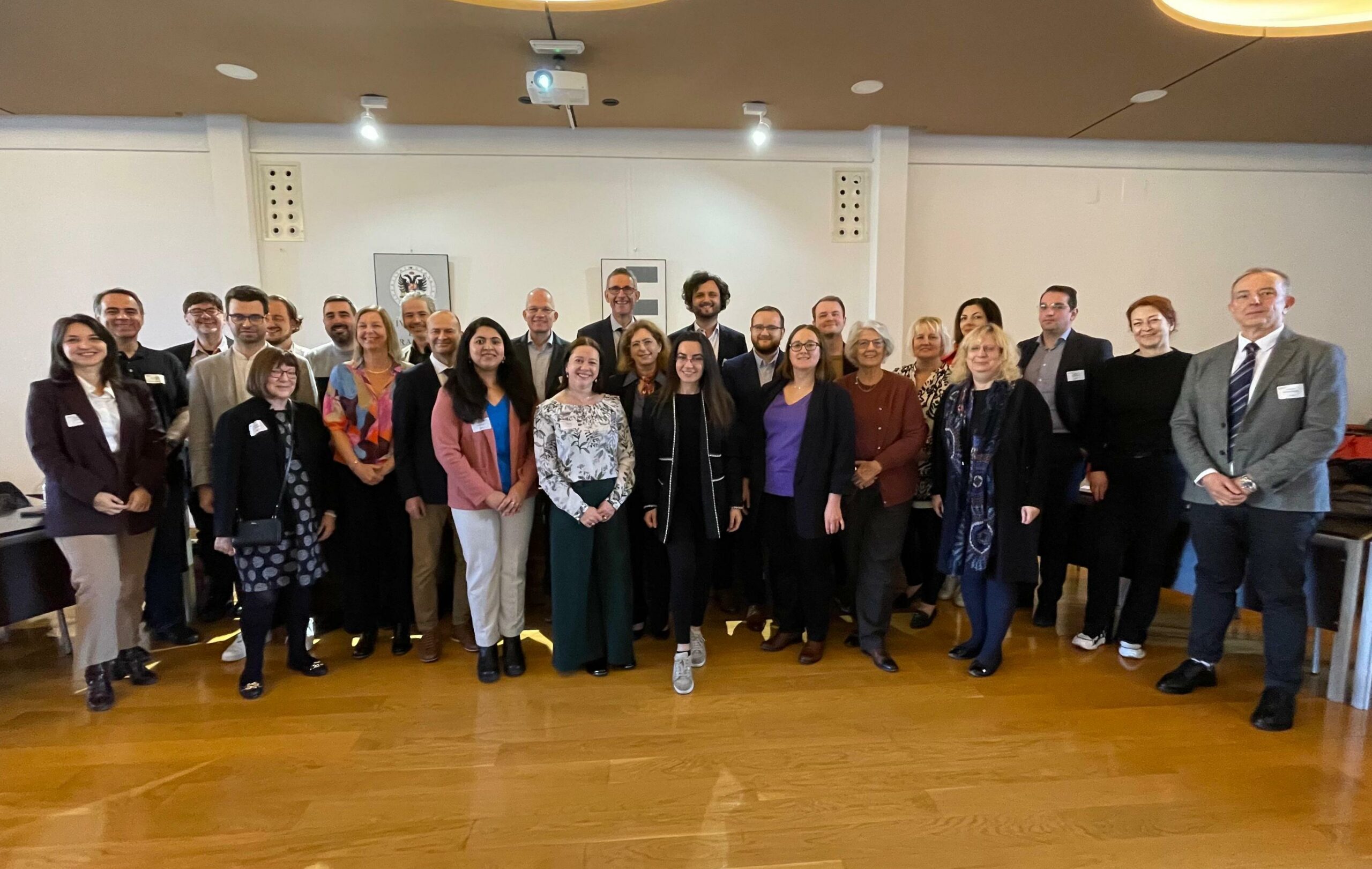
Members’ Dialogue explores “EQAR, quo vadis?”
The 13th EQAR Members’ Dialogue “EQAR, quo vadis?” was centered around the QA Fit Focus Group for ministries and input on the EQAR Strategy 2024-2028.
The event was hosted by the University of Granada in the Advanced Technical School for Building Engineering on 9-10 November.
During the opening session, Ana Rivas, Vice-Rector for Quality, Teaching Innovation and Undergraduate Studies of the University of Granada welcomed all participants to Granada and stressed the importance of trust in qualifications through quality assurance and the relevance of having an official register of QA agencies, listing those that work in line with an agreed common framework to ensure the quality of higher education institutions and study programmes.
Stéphane Lauwick, President of EQAR, welcomed everyone and conveyed his gratitude to Ana Rivas and the University of Granada for their warm welcome and overall support. He pointed out that the input of members during the coming days was paramount for the development and enhancement of EQAR and expressed his hope for active and animated participation.
The two main topics, the QA-FIT Focus Group (ESG and Internationalisation) and the EQAR Strategy, were covered extensively, generating fruitful discussions and insightful comments from participants.
Other topics also passed the revue, ranging from the European Degree to the European Approach for QA of Joint programmes, the QA of micro-credentials, the European Digital Credentials for Learning (including a DEQAR connection) and the European Blockchain Initiative (EBSI), using DEQAR data.
Some sound-bites of our event to reflect upon.
On the topics of “the future of the ESG” and “internationalistion of QA”:
- Thanks to the European University Alliances and the current initiatives piloting a joint European degree label, there is a strong push to move forward. Solutions should be applicable to the whole EHEA however.
- DEQAR data provide an indication of internationalisation through information on cross-border QA activities, and the use of the European Approach for the QA of Joint Programmes
- Contrary to the common believe that ministries regulate everything, survey responses showed that most QA agencies help design the national QA framework (which is actually stated in the ESG themselves; “Stakeholders should be involved in its design and continuous improvement”).
- We don’t necessarily need a revolution, but we do see a scope for broader ESG.
- Guidelines (ESG) are not actually guidelines – they are rather an interpretative text for implementing the standards. For the next revision of the ESG, it is crucial to detect which standards need to be more explicit and which are sufficiently clear as they are.
Regarding the EQAR Strategy:
- What is the ultimate goal of the member states? “Trust in qualifications”?
- EQAR is in the best position to discuss the QA developments and trends with ministries and is not just there to provide information. The Secretariat informs policy but EQAR as a structure should also shape/guide policy.
- EQAR could do more in the outreach to the ministries. One aspect would be to make the access to information already available (both on the website and on DEQAR) more accessible, another aspect would be to promote it further (via short webinars or other means).
We thank all our speakers and participants of the EQAR Members’ Dialogue (MD) for coming to Granada and making the MD what it should be; an informal forum for exchange and networking among governments on issues related to quality assurance. We enjoyed the vivid exchanges, pointed questions and fruitful discussions.